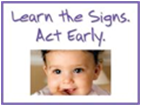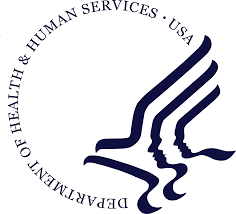30 LTSAE Ambassadors Reach and Influence the Behavior of 36,983 Target Audience Members
 The esteemed Act Early Ambassadors who serve as state liaisons to the "Learn the Signs. Act Early." (LTSAE) project have implemented several innovative and effective strategies to reach target audiences and improve early identification of Autism Spectrum Disorder and developmental delays. In just three months, the Ambassadors have reached approximately 36,983 total target audience members. These target audience members include 18,873 parents of young children, 12,001 audience members through media outlets, 3,628 early care and education providers, 1,404 health care professionals, 846 family service providers, and 231 Act Early State Team members. A total of 39,984 LTSAE materials have been distributed to the target audience members. The Ambassadors have distributed Milestone Moments booklets, brochures, and checklists, and Amazing Me: It's Busy Being 3! Materials, and integrated the Watch Me! online modules while delivering key LTSAE messaging to practitioners at UCEDDs, LENDs, health departments, home visiting programs, WIC, and public libraries.
The esteemed Act Early Ambassadors who serve as state liaisons to the "Learn the Signs. Act Early." (LTSAE) project have implemented several innovative and effective strategies to reach target audiences and improve early identification of Autism Spectrum Disorder and developmental delays. In just three months, the Ambassadors have reached approximately 36,983 total target audience members. These target audience members include 18,873 parents of young children, 12,001 audience members through media outlets, 3,628 early care and education providers, 1,404 health care professionals, 846 family service providers, and 231 Act Early State Team members. A total of 39,984 LTSAE materials have been distributed to the target audience members. The Ambassadors have distributed Milestone Moments booklets, brochures, and checklists, and Amazing Me: It's Busy Being 3! Materials, and integrated the Watch Me! online modules while delivering key LTSAE messaging to practitioners at UCEDDs, LENDs, health departments, home visiting programs, WIC, and public libraries.
In addition to delivering LTSAE key messaging to and collaborating with home visiting programs, public libraries, and museums, several Ambassadors are using media outlets to disseminate customized materials to primary and secondary target audiences. The Rhode Island Ambassador, Stacey Aguiar, is implementing a communication plan with the Communication Department at the Rhode Island Department of Health. The communication plan includes incorporating LTSAE web links onto www.health.ri.gov, showcasing LTSAE materials, web links, and videos on social media platforms, and having the DOH Director promote LTSAE messages on monthly Poder (Spanish language) radio appearances.
Information for Early Identification Change Agents: Effective Strategies for Attitude and Behavior Change

A Qualitative Research Method Used to Understand Attitudes towards Current Developmental Monitoring Procedures
Sue Olsen, the Act Early Ambassador in Utah conducted a focus group with the Northern Utah Preschool Coalition. The purpose of the focus group was to understand educators' attitudes and beliefs about the current use of developmental monitoring. The focus group also aimed to gather their understanding of Autism Spectrum Disorder and knowledge of what to do if a developmental concern is identified. The early care and education provider participants also received a presentation about the LTSAE initiative. Attendees received Milestone checklists, and information on where to find and download the checklists on the CDC website.
An evaluation of the focus group revealed that 100% of the early care and education provider participants learned at least one new tool/strategy for identifying children with developmental concerns. Ninety percent are likely to use LTSAE materials, and 100% are interested in using the Watch Me! Celebrating Milestones and Sharing Concerns resource.
Outreach to Somali Communities in Minnesota
Minnesota's Act Early Ambassador, Jennifer Hall-Lande, partnered with the Minnesota Department of Health and the Somali public health nurse to distribute LTSAE materials to Somali families with young children during home visits. Learn the Signs. Act Early. Materials including the Milestones Moments brochure and booklet were translated into Somali. By September 2014, over 600 Somali Milestone Moments booklets and 1,500 brochures were disseminated. The LTSAE Somali materials are in high demand, and the Milestone brochure has been downloaded 1,696 times, and the Milestone booklet has been downloaded 8,756 times. The outreach project has reached well over 1,500 Somali parents living in Minnesota.
To increase Autism Spectrum Disorder (ASD) awareness and knowledge among Somali families, three video podcasts promoting ASD awareness and the importance of early screening was developed by the Somali Leadership Education in Neurodevelopmental and Related Disabilities (LEND) Fellows and Minnesota Act Early Team.
Techniques for Training Health Care Professionals
The Connecticut Act Early Ambassador, Ann Gionet, partnered with the Connecticut UCEDDD to present the Learn the Signs. Act Early. PowerPoint presentation to health care professionals. The training presentation includes Tips for Talking with Parents and Autism Spectrum Disorders, and several LTSAE materials were distributed to the health care providers. Each participant received a folder with the CT Guidelines for a Clinical Diagnosis of ASD, LTSAE Milestone Moments Booklets, Track Your Child's Developmental Milestones Brochure, Milestones Checklists, It's Time to Change How We View a Child's Growth, and fact sheets.
Follow-up questionnaire results showed a 3.81 overall satisfaction score of the training, which was based on a four point evaluation scale from one (not satisfied at all) to four (completely satisfied). The training scored a 3.71 for increased knowledge.
The Development of an Online Developmental Screening Portal for Parents and Child Care Providers
The Texas Ambassador, Pauline Filipek is working on the launch of The Act Early Texas! (AET!) Developmental Screening Portal website that will provide parents and child care providers with an opportunity to conduct developmental screenings on their children at no charge. AET! will use the Ages and Stages Questionnaire (ASQ ) and the Modified Checklist for Autism in Toddlers, Revised (MCHAT- R). The website will also host information from the CDC's Learn the Signs. Act Early. campaign to increase awareness for developmental screening, and information will be available in English, Spanish, and Vietnamese. LTSAE materials are available to download in the Resources section of the website. AET! Also features free online training modules for child care providers on child development, the importance of screenings, and how to talk to parents about screenings.
Spotlight on State Systems Grantees
 The State Systems Grantees strengthen their state and community systems for early identification and intervention services coordination for children with signs of ASD and other developmental disabilities.
The State Systems Grantees strengthen their state and community systems for early identification and intervention services coordination for children with signs of ASD and other developmental disabilities.
Montana State Team: Part C is updating their website, and the Montana State team is incorporating LTSAE activities into the website revision project, so resources will be available in one web portal.
New Mexico State Team: The team has created professional development telehealth webinar series that offer CME/CEU credits which started in the fall of 2014. Topics include DSMV and Autism Spectrum Disorder Diagnosis, Infant Mental Health, Early Brain Development and Culturally-Responsive Family Services, the Early Childhood Landscape in NM, and LTSAE and Bilingual Communication Development and Delays.
New Jersey State Team: Surveys conducted by the New Jersey State team revealed that Early Head Start/Head Start directors want to learn strategies for dealing with challenging behavior, enhancing inclusion in the classroom, and communicating concerns with parents. Parent led trainings that provide information and instruction for these strategies for Early Head Start/Head start began in October, 2014.
Research, Resources, and Peer Reviewed Literature to Support Your Early Identification and Intervention Projects

The Early and Periodic Screening, Diagnostic, and Treatment benefit (EPSDT) Resource Compendium developed by the National Academy for State Health Policy (NASHP) with support from the Centers for Medicare and Medicaid (CMS) includes state-specific data and efforts for developmental and behavioral screenings. The NASHP resource page provides access to information from state Medicaid agencies on a variety of topics including:
- General and specific definitions of medical necessity used by states
- Initiatives to improve access to preventive and treatment services for children
- Reporting and data collection strategies around children's services
- Approaches to behavioral health screening and service delivery
- Resources developed to support providers and families
- Initiatives to improve care coordination for children
NASHP's website also includes a resource center for its Assuring Child Development (ABCD) III initiative, focused on developmental screening. The ABCD resource center provides early identification professionals, primary care providers, and other family service providers with access to research, resources, and peer-reviewed literature to support your work in improving developmental services to young children.
Minnesota Act Early Team Actively Targets Culturally Diverse Communities
Spreading the Act Early message within diverse communities has taken many different forms. A creative approach has been the development of statewide Minnesota Act Early Network of partners and delegates. The MN Act Early team in collaboration with the Minnesota Department of Health will be identifying cultural liaisons within local diverse communities and then nominating Act Early delegates within local communities. Formed in 2012, the Act Early delegate network reach out to their local communities and educate families around early screening. This has been an effective approach as it takes the message directly to the community from a trusted community member and builds ongoing capacity directly within the community. Drawing on statewide input, the Act Early team has addressed the training needs of health care professionals in working with diverse communities. The Act Early team hosted a webinar with healthcare providers, which can be found at: http://lend.umn.edu/forums/screenings.asp. To date, the Minnesota Act Early team has participated in variety of outreach campaigns within diverse communities, please click here to read more!
Three New Home Visiting Models Meet HHS Criteria as Evidence-Based Models
 Three new home visiting program models for families with children from birth to age five including the Durham Connects/Family Connects, Minding the Baby, and Family Spirit have met the US Department of Health and Human Services criteria for evidence-based models of effectiveness. The Family Spirit model also meets the HHS criteria for an evidence-based model for tribal communities.
Three new home visiting program models for families with children from birth to age five including the Durham Connects/Family Connects, Minding the Baby, and Family Spirit have met the US Department of Health and Human Services criteria for evidence-based models of effectiveness. The Family Spirit model also meets the HHS criteria for an evidence-based model for tribal communities.
These three evidence-based program models offer early identification professionals an opportunity to partner with home visiting programs to present early screening and intervention information in an endemic environment.
The Durham Connects/Family Connects aims to support families with children aged two to 12 weeks and their efforts to enhance their children's health and wellbeing. The Minding the Baby program works with first time, low-income pregnant mothers until their child is two years of age. The evidence-based program model promotes attachment, health, mental health, parental reflection, and self-efficacy in babies, mothers and their family members. Developed for Native American pregnant women and their children until age three is the Family Spirit Model that incorporates traditional tribal teaching while promoting mother's effective problem solving and coping skills.


